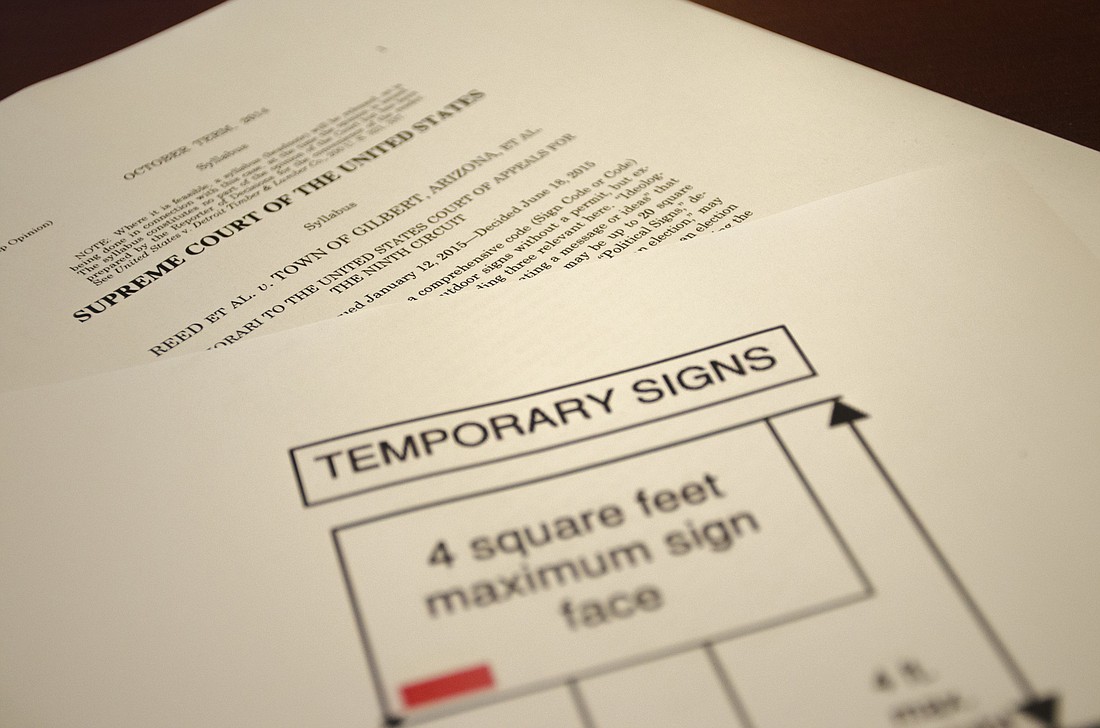- April 19, 2024
-
-
Loading

Loading

Longboat Key commissioners shelved until after the March elections a sign code town staff have been rewriting for more than a year to meet Supreme Court standards of content neutrality.
The court ruled in 2015 that municipalities may not regulate signs based on what is on them, an act it found in violation of the First Amendment. The latest iteration of Longboat's proposed sign code allows, among many other regulations, two temporary signs per property which may be permitted by the property owner or his or her agent for six months. This includes one two-square-foot sign and one four-square-foot sign with a one-square-foot informational rider (like "for sale," "this way," etc.).
It was the cost of permitting a sign that gave commissioners trouble. The former code permitted four five-square-foot political signs, which were, and still are, exempt from permitting and the fees accompanying them, according to Code Enforcement Officer Chris Elbon.
“You think it's hard getting people to run [for the commission] now, just wait until they have to pay $1,000 for signs,” said At-Large Commissioner Jim Brown.
Political signs would be treated as any other temporary sign under the new code, all of which would require permitting. District 2 Commissioner George Spoll suggested removing all temporary sign permit requirements for 30 days before an election.
“[Permit costs] interferes with the most basic part of our democracy, the ability to reach out in an election,” Spoll said.
But the most sound way of avoiding conflict with the Supreme Court decision and offer freedom the commission seeks for political signs may be to eliminate permitting fees altogether, said Town Attorney Maggie Mooney-Portale.
Signs exempt from permitting under the proposed code include government signs, signs carried by a person, historical signs and regulatory sings.
Revenue from temporary signs ranges between $300 and $600 each year, said Finance Director Sue Smith.
Planning and zoning staff, which have been working to rewrite the sign code, does not intended to bring back the sign code until after the March town election, said Town Planner Maika Arnold.